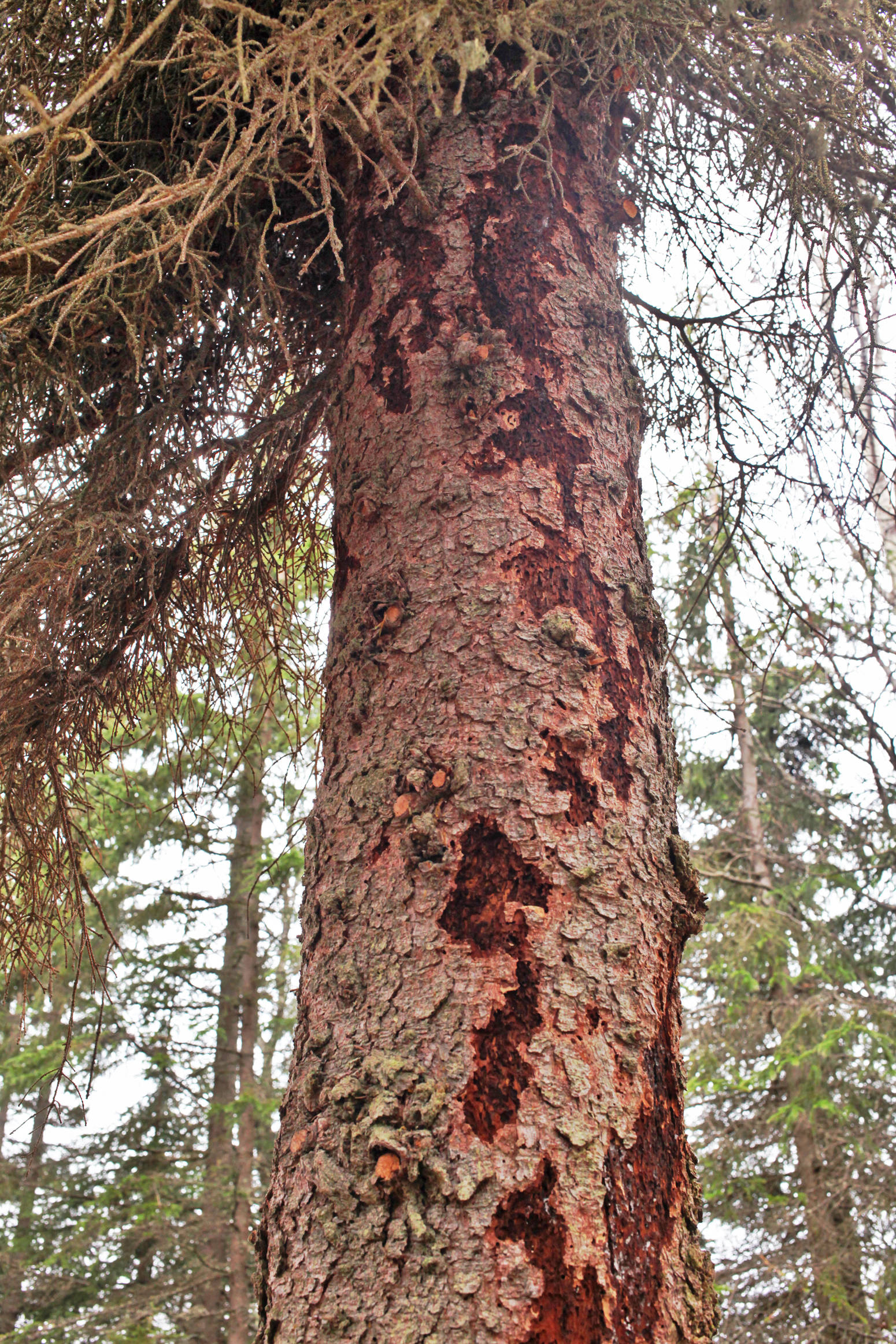Community members are finding a charitable way to take care of the Peninsula’s ever-increasing spruce bark beetle problem.
The Soldotna Parks and Recreation Department felled nearly 100 trees killed by spruce bark beetles earlier this month. Soldotna Bible Chapel cleared the trees and the brush over the last three weekends. The wood was cut and will be distributed to families in need of firewood.
Tom Marok, who coordinated the clearing of the wood for the church group, said the wood will be stored until the weather gets colder, then it will be distributed to “single moms, widows and older folks who can’t go get their own wood anymore.”
Andrew Carmichael, director of Soldotna Parks and Recreation Department, said he happened to run into Marok, who asked about wood for needy families. The Soldotna Bible Chapel then filled out an application and received a permit to clear the trees.
Carmichael said the city did something similar about 10 years ago, when around 200 trees were felled and a local high school football team helped to clear the area.
The city doesn’t have a formal program to allow the public to participate in dead tree removal on city-owned lands but has issued similar permits in the past when approached by organizations with a special request, according to Soldotna City Manager Stephanie Queen’s June 20 report to the Soldotna City Council. In these situations, proof of insurance is required, along with a site and time-specific permit.
The city didn’t need all the wood taken from the park, according to the city manager’s report. Typically, dead trees will be felled by the Parks and Recreation Department and then sold for firewood at campgrounds.
“When we got into Swiftwater we realized it was much more than we had, more than we needed,” Joel Todd, assistant Parks and Recreation Department director, said.
Todd said spruce beetle damage comes in waves.
“We saw signs (in Swiftwater Park) in past years, but then it went from dozens (of trees), to lots,” Todd said.
Many of the trees taken down at Swiftwater Park were smaller, according to Carmichael, which he said is unusual.
“Historically they go after more mature trees,” Carmichael said. “Though if they’re hungry they’ll get whatever they can get.”
In 2017, surveyors documented the highest number of acres with spruce bark beetle infestations since the last outbreak in the 1990s. Outbreaks are cyclical, and vary depending on how warm and dry the conditions are.
In recent years spruce beetle damage was concentrated in the northwest portion of the peninsula and has rarely been mapped in the Soldotna area, according to the U.S. Forest Service. However, in 2017 spruce beetle damage became evident in Kenai, Soldotna and Kasilof, as well as in areas near Skilak Lake and in areas near Tustumena Lake.
Spruce beetles infect Sitka, white and Lutz spruce, and sometimes black spruce. They burrow themselves into the phloem, a thin layer of the tree between the bark and the wood. The beetles will lay their eggs in “galleries” under the bark. The beetles feed off of the phloem, which ultimately kills the tree.
Since the mid-1970s spruce beetles have killed spruce trees on 1.2 million acres of the Kenai Peninsula, or about 50 percent of the Peninsula’s forested land, according to the Alaska Division of Forestry.
Todd said the wave of spruce bark beetles are strong this year and have been the last few seasons. The damage by the spruce beetles isn’t specific to Swiftwater Park. He said he recently noticed spruce beetle damage in Centennial Park as well as along the Tsalteshi Trails near Soldotna, which occupy land owned by the borough but leased and maintained by the nonprofit Tsalteshi Trail Association.
Since spruce beetles can leave infested firewood and go to attack living trees, Soldotna Bible Chapel will be storing the wood and curing it before distributing to people in need of firewood this winter.
Reach Victoria Petersen at vpetersen@peninsulaclarion.com.

